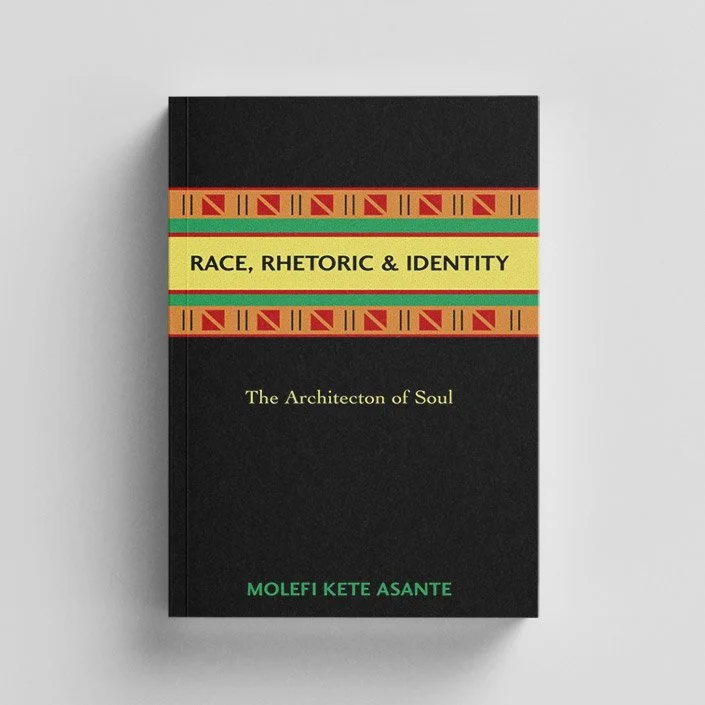Race, Rhetoric & Identity: The Architecton of Soul
by Molefi Kete Asante | Humanities Press (2005)
Reviews
“A passionate call for a return to humanity. Molefi Kete Asante offers a provocative and enlightening analysis of rhetorical construction of race and identity in historical, intellectual, and institutional contexts as well as a solution to heal wounds and repair souls.” ―Xing Lu, Ph.D. Professor, Department of Communications, DePaul University “Molefi Asante’s most recent work continues to set the standard for critically discussing how African Americans and the Afrocentric idea have challenged the race concept in America and around the world. This is a highly informative and powerful book which stimulates us to move beyond our rudimentary constructs of race and power.”
—Katherine Bankole, Ph.D., Director West Virginia University Center for Black Culture and Research Assistant Professor of History, Eberly College of Arts and Sciences
Summary
In this new collection of insightful essays, the most prolific contemporary African American intellectual and the leader of the Afrocentric school of thought turns his critical attention to the many ways in which modes of communication in American culture have created a dehumanizing African American identity. Asante examines a wide range of cultural phenomena that continue to reflect underlying racial problems, including media distortions, the identity crisis among African Americans, the rhetoric of education, the exploitations of bureaucracies, "the tyranny of reason without passion," African voices expressed through European literary forms, and arguments about justice and reparations.
Asante's approach is based on the Afrocentric idea, which treats African people, either on the continent or in the Diaspora, as primarily subjects of African cultural experiences rather than as marginal people confined to the fringes of European or American culture. The advantage of this fresh perspective is that it not only puts people of African heritage on an equal footing with people from other cultures, but it also allows one to evaluate American and European ideas from an African perspective. This reorientation of the facts opens up new insights and new possibilities for creating a truly egalitarian American society. Anyone who wants to understand the complex problem of racism in America will welcome Asante's creative, original, and constructive approach.
You might also be interested in:
The History of Africa
Being Human Being
100 Greatest African Americans



